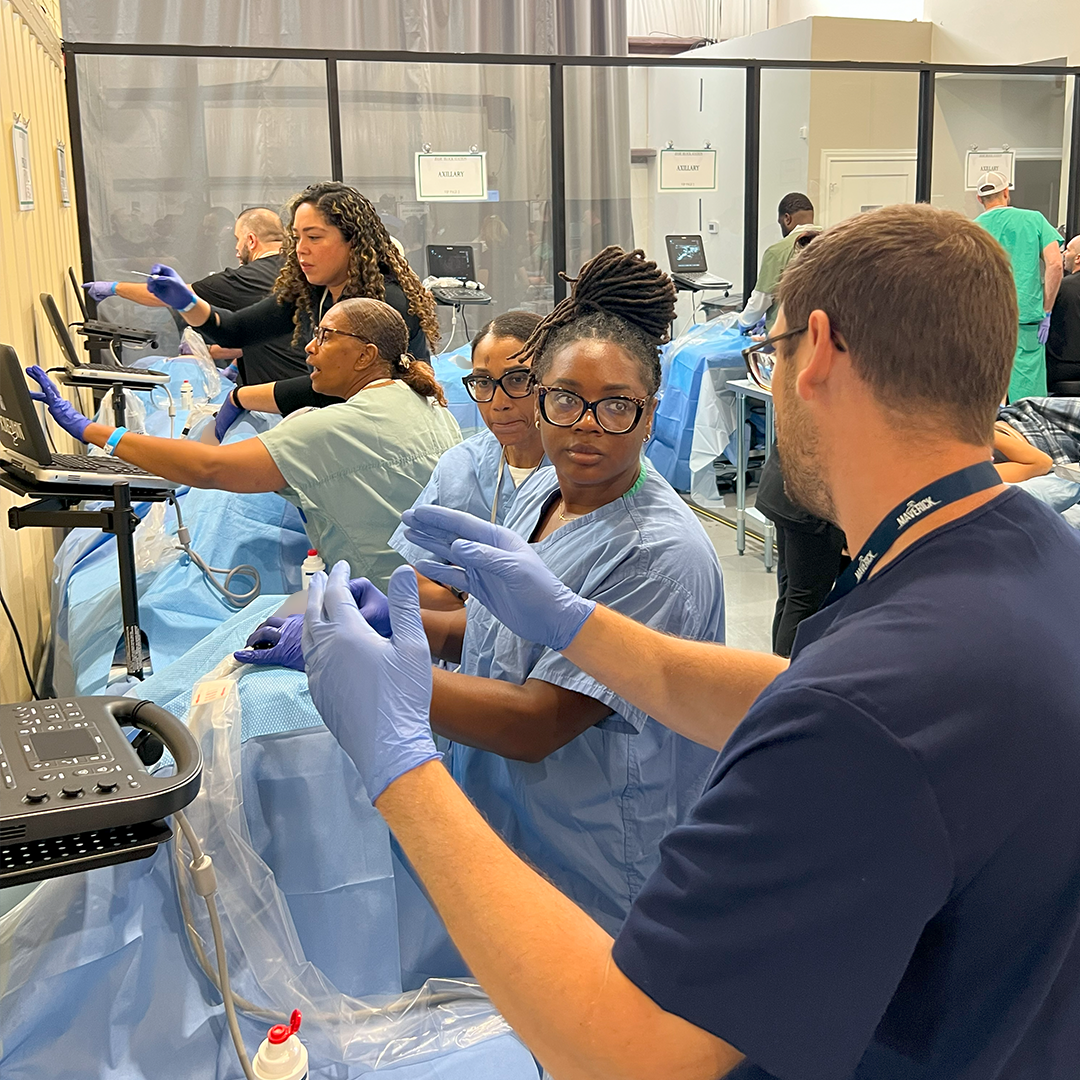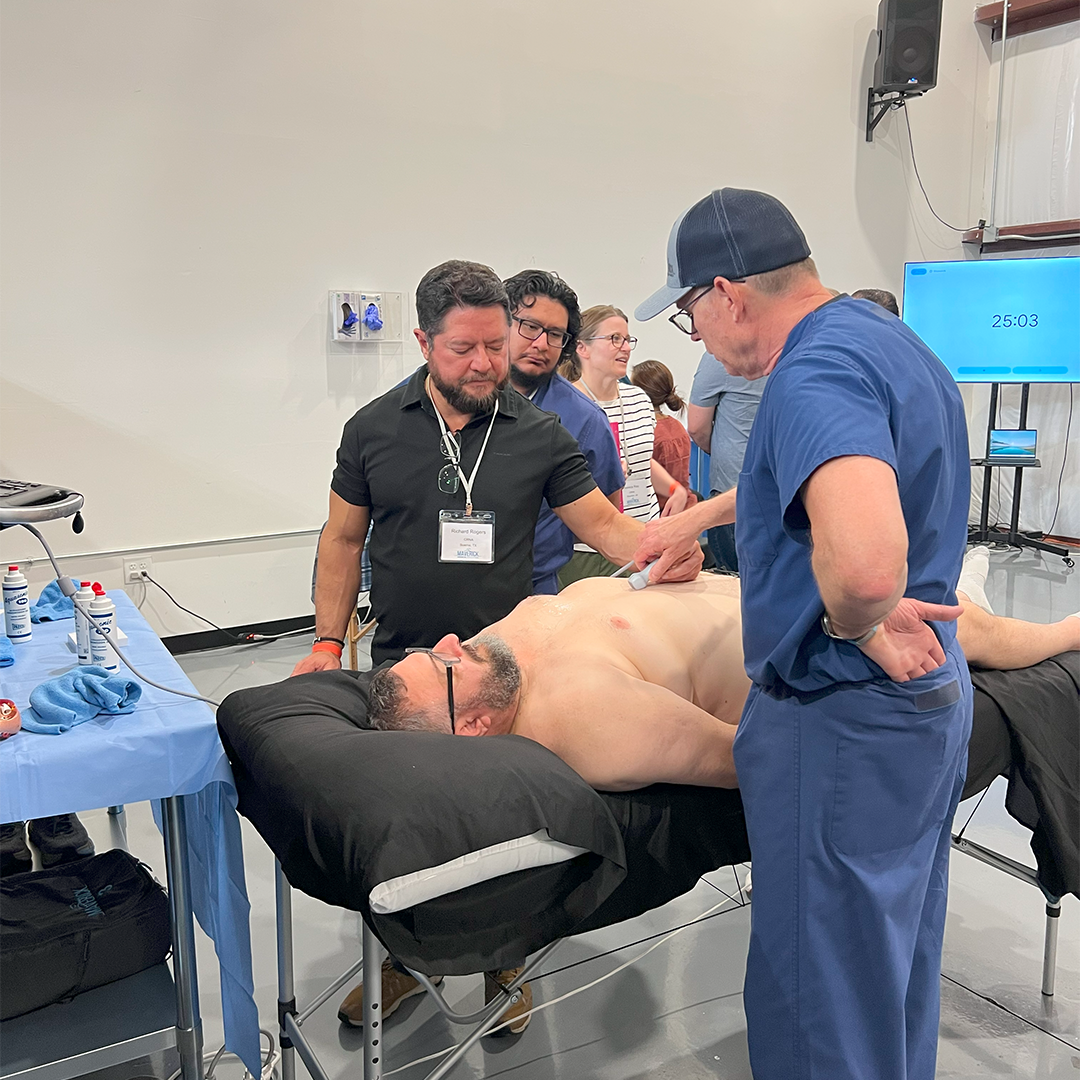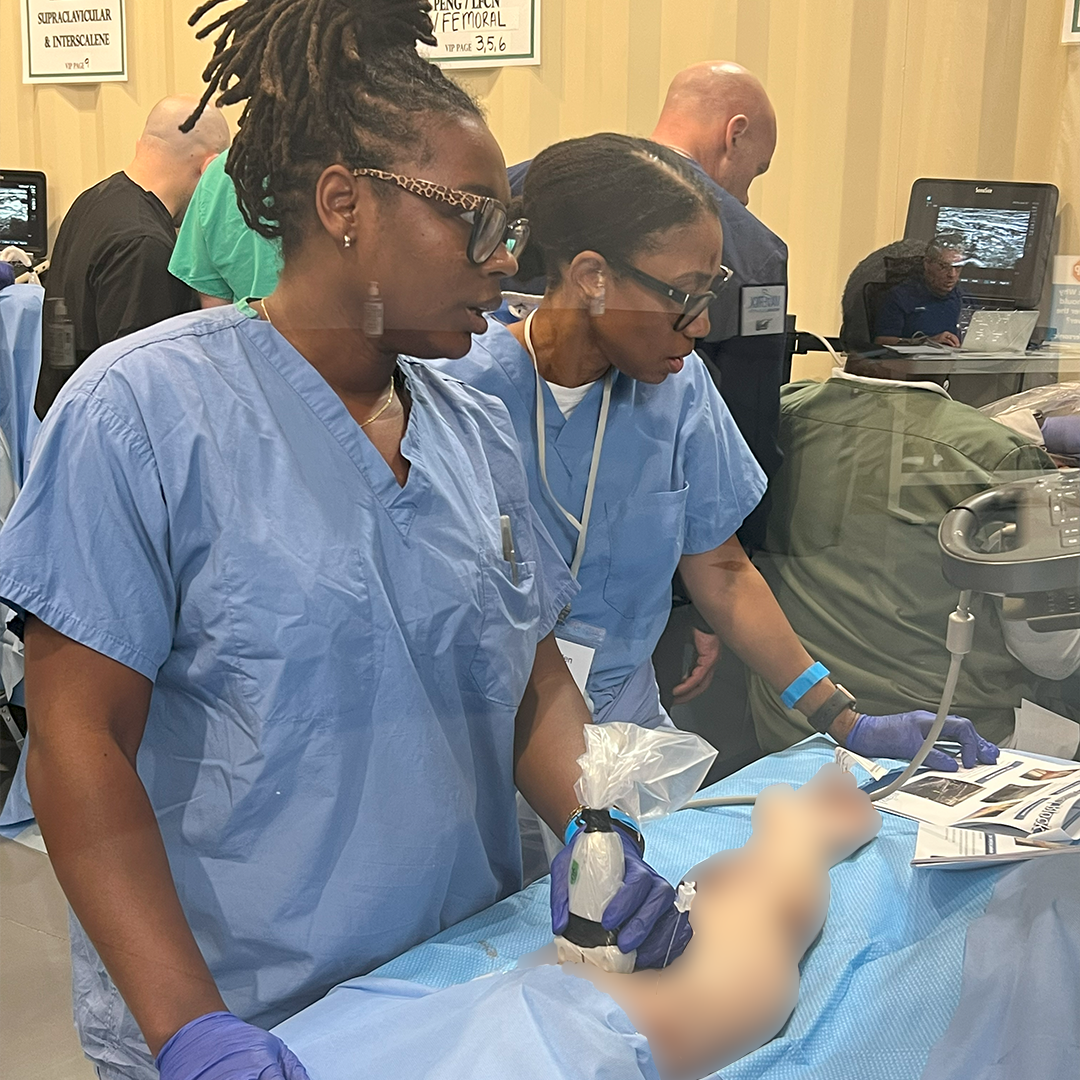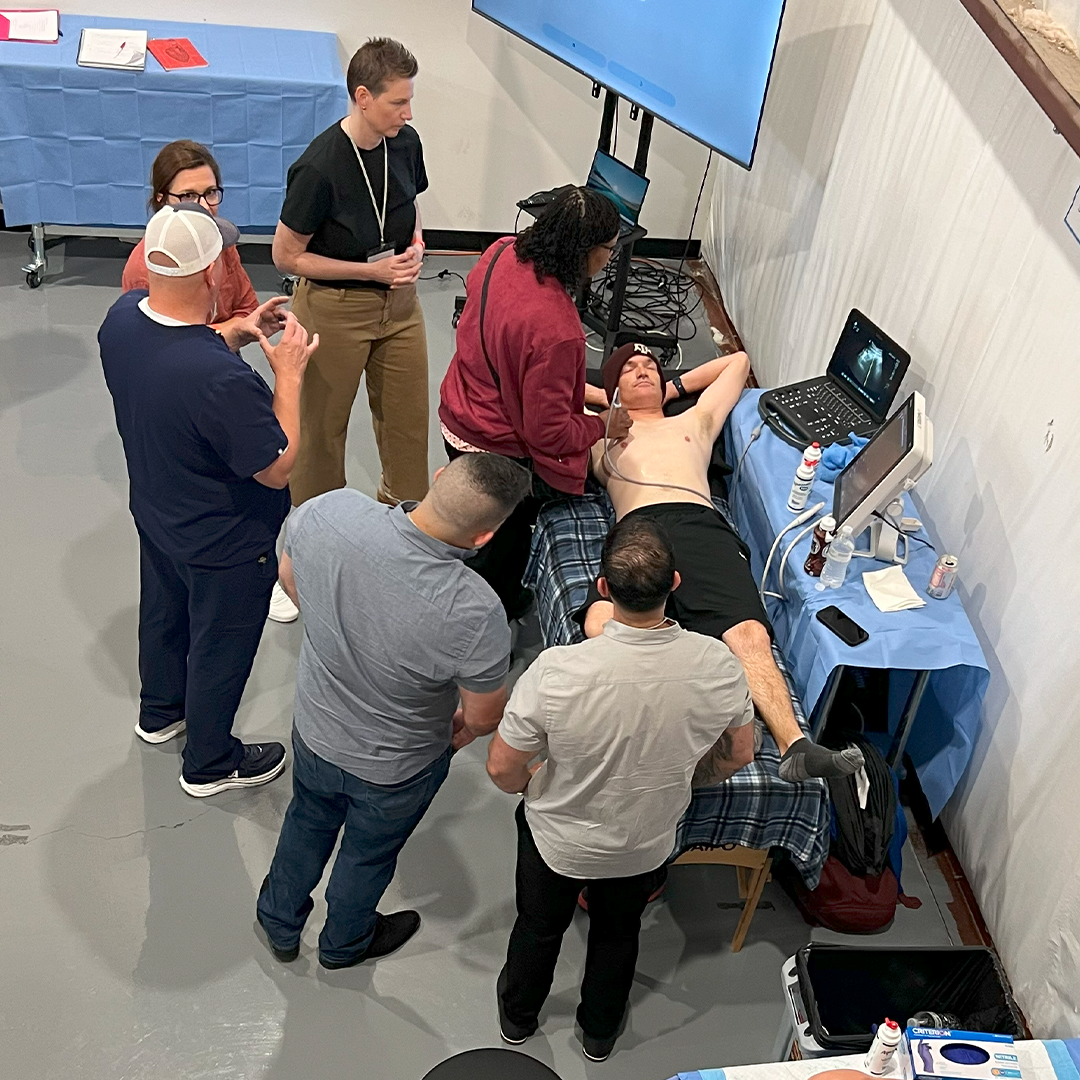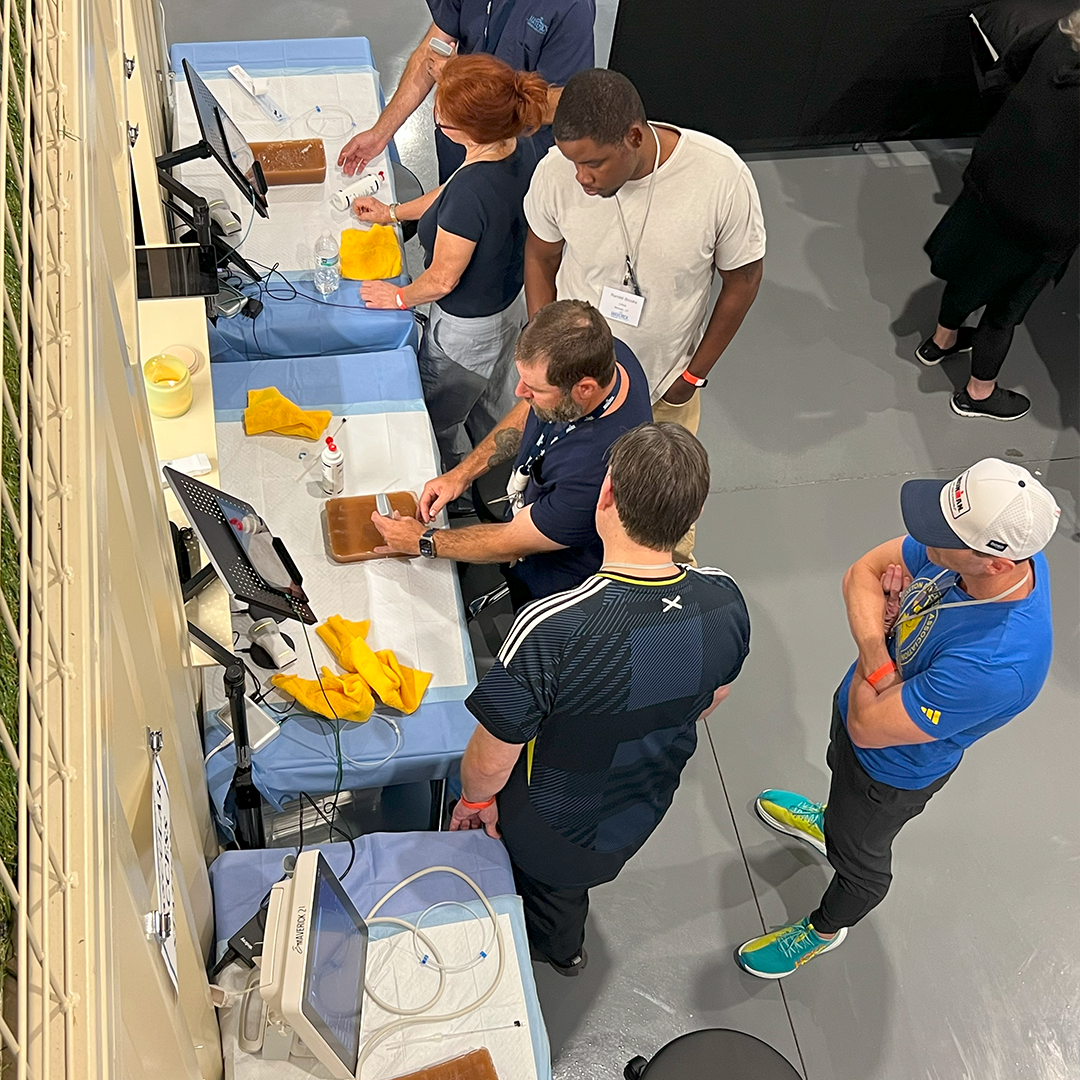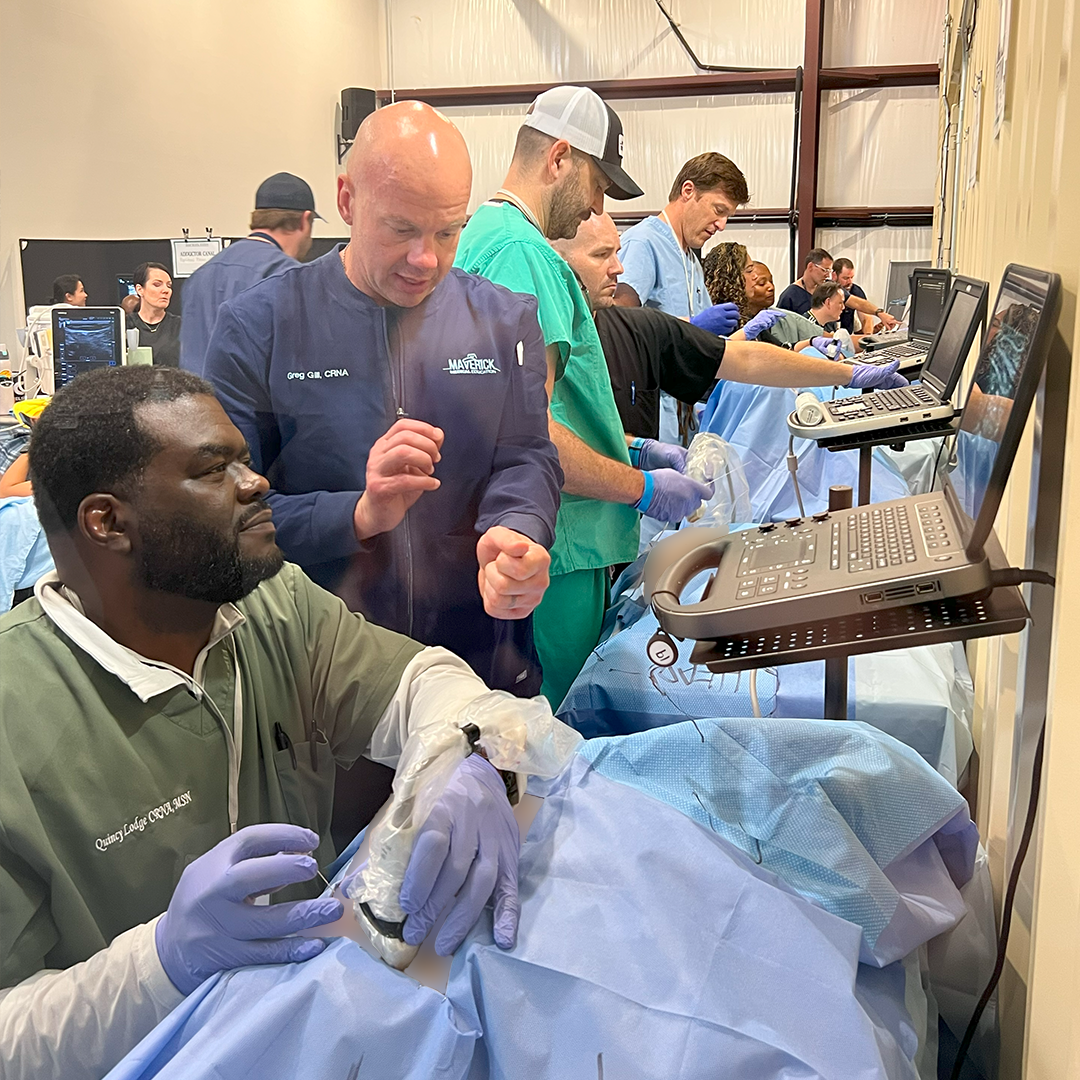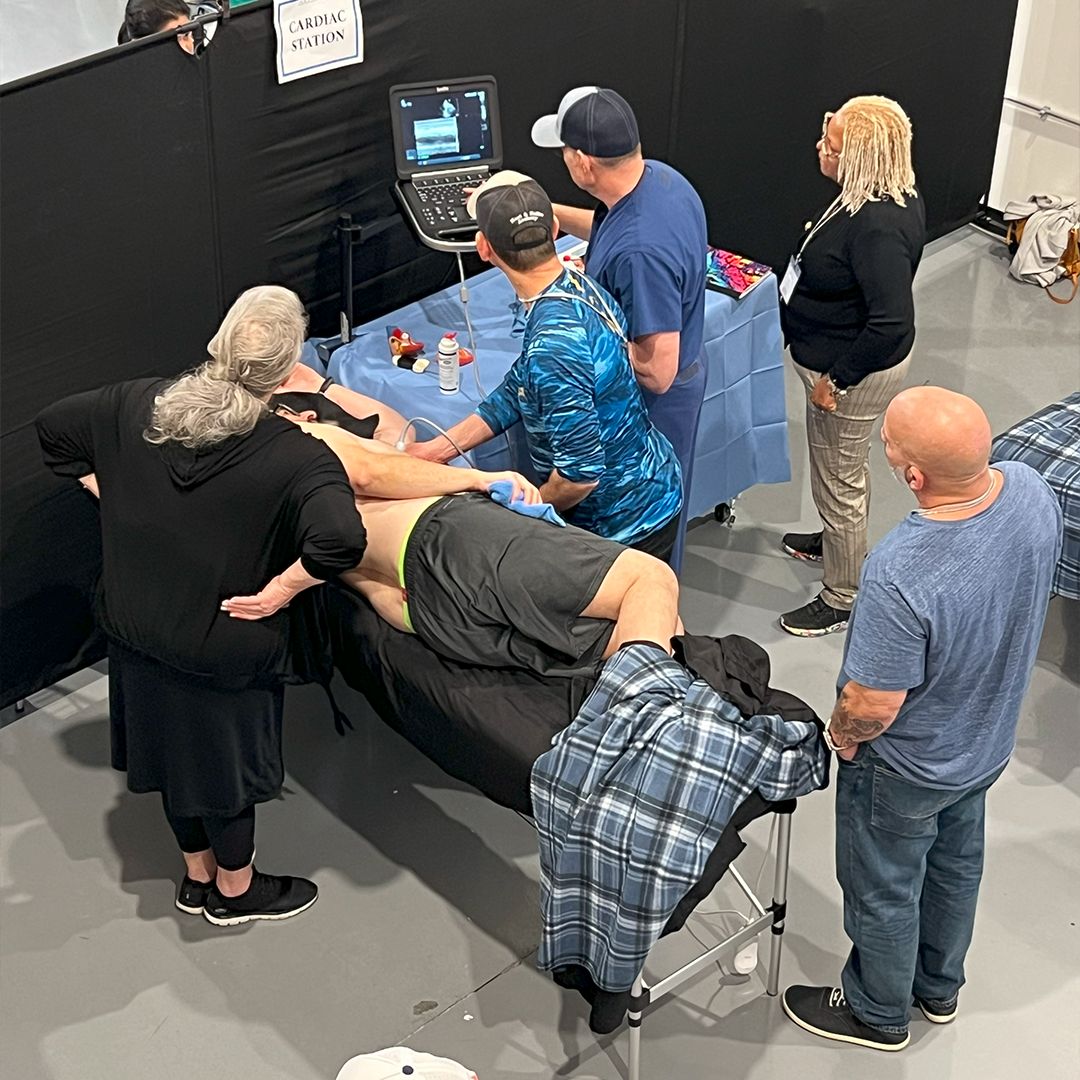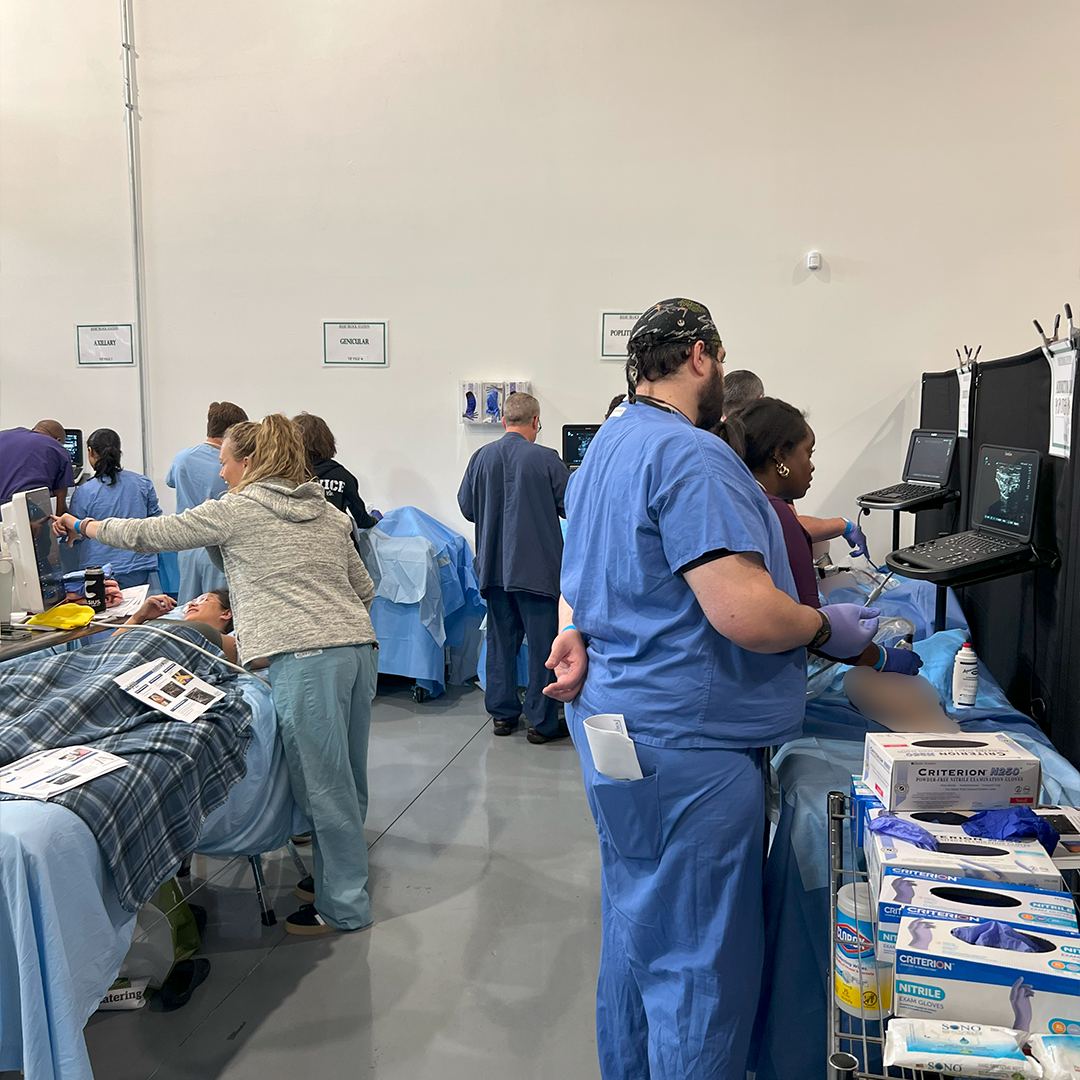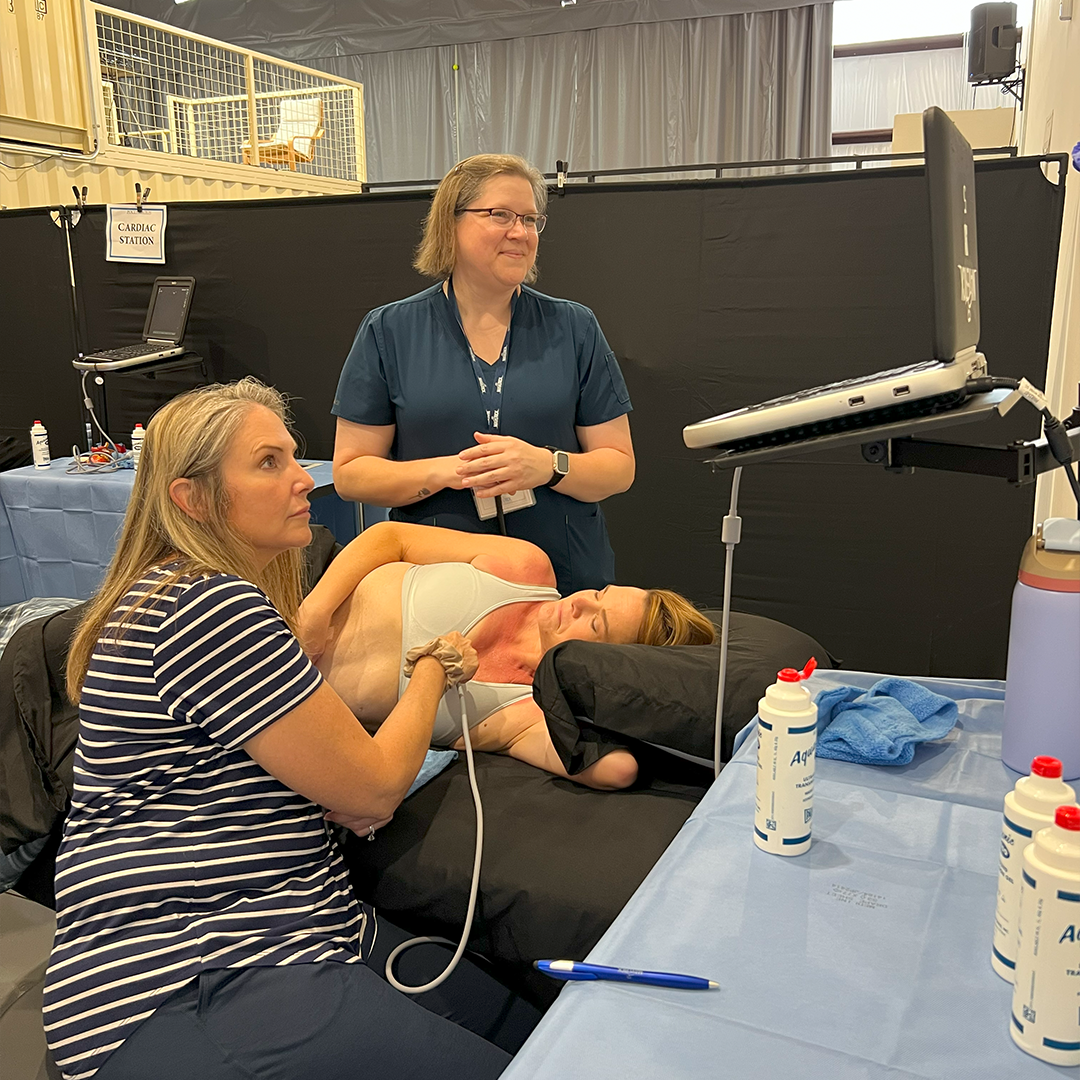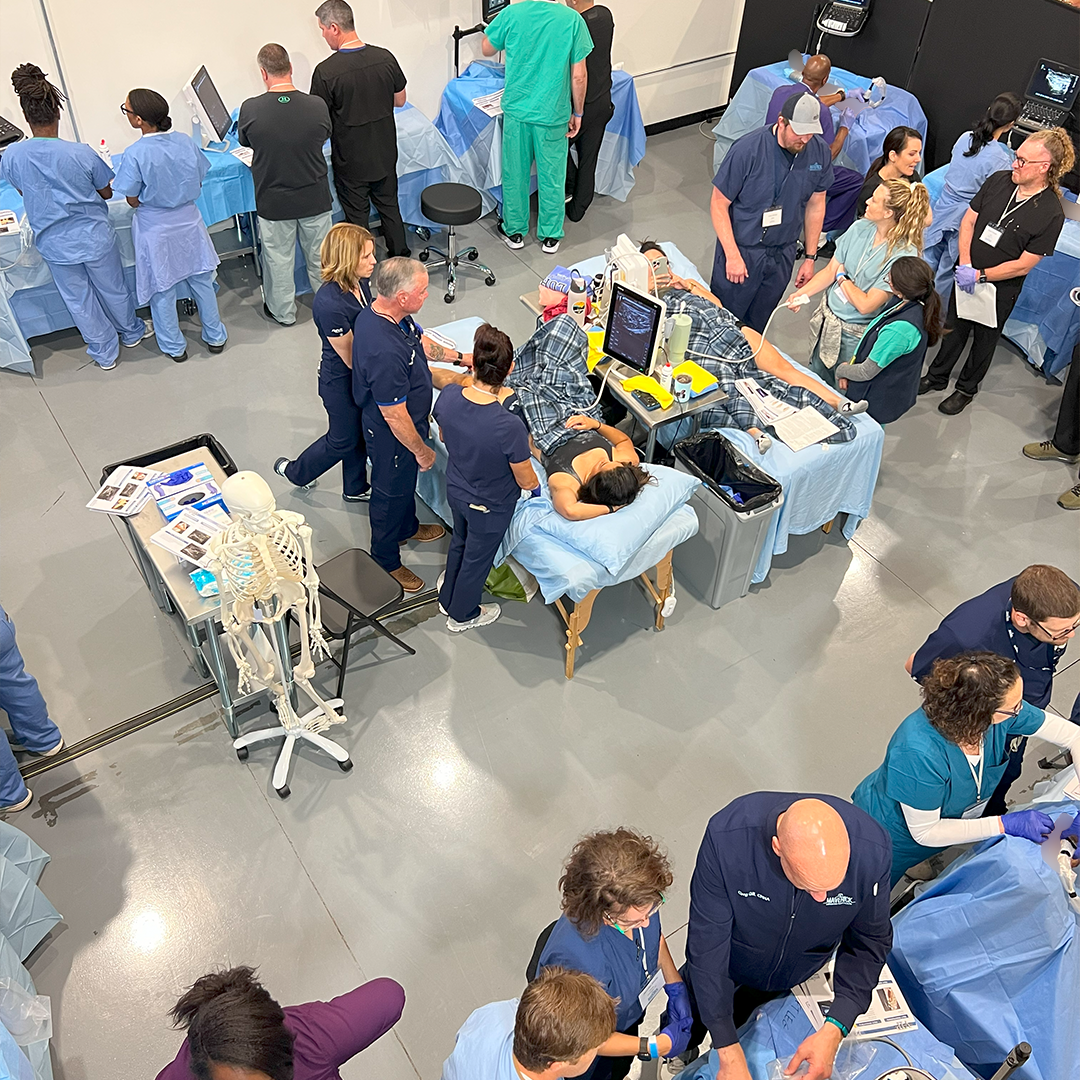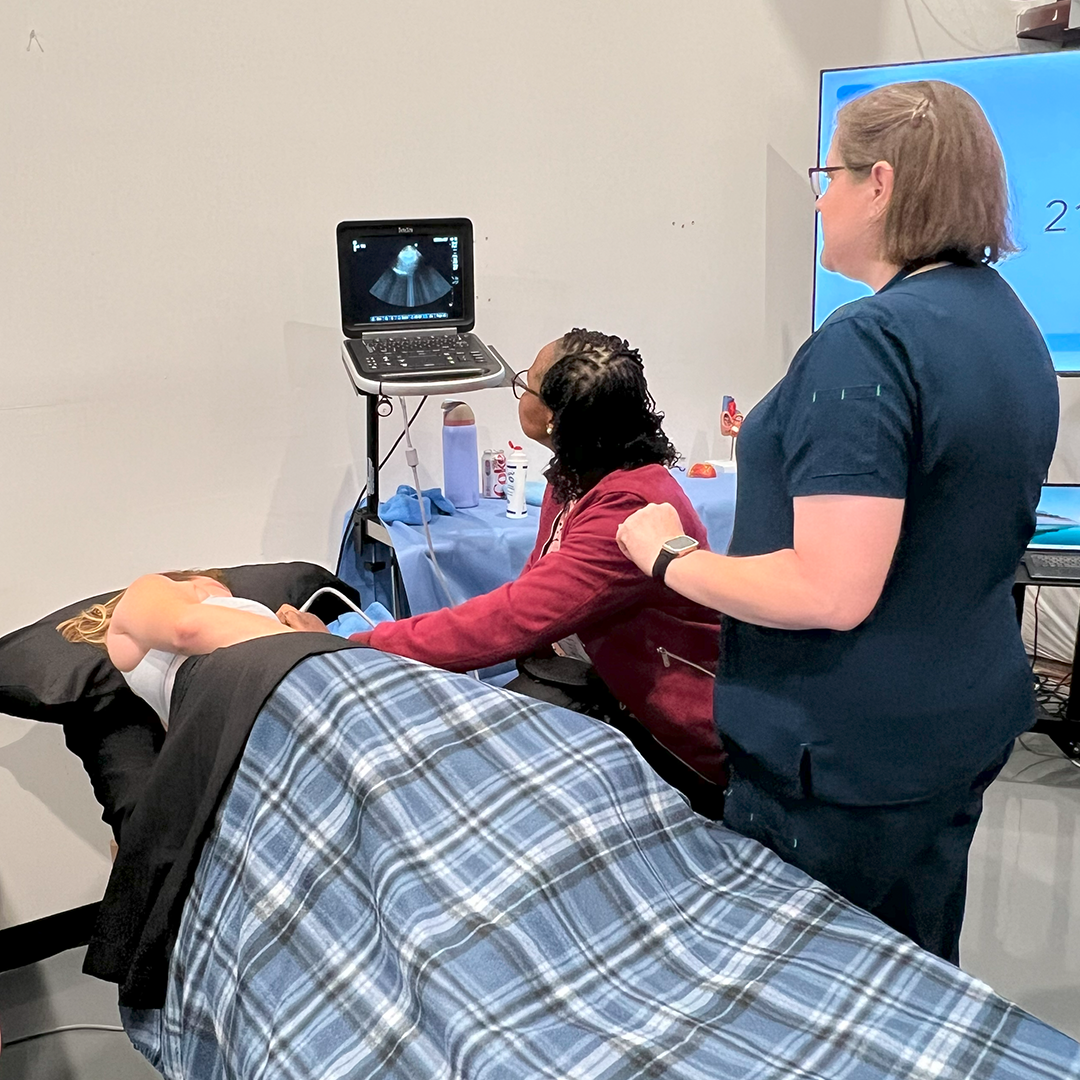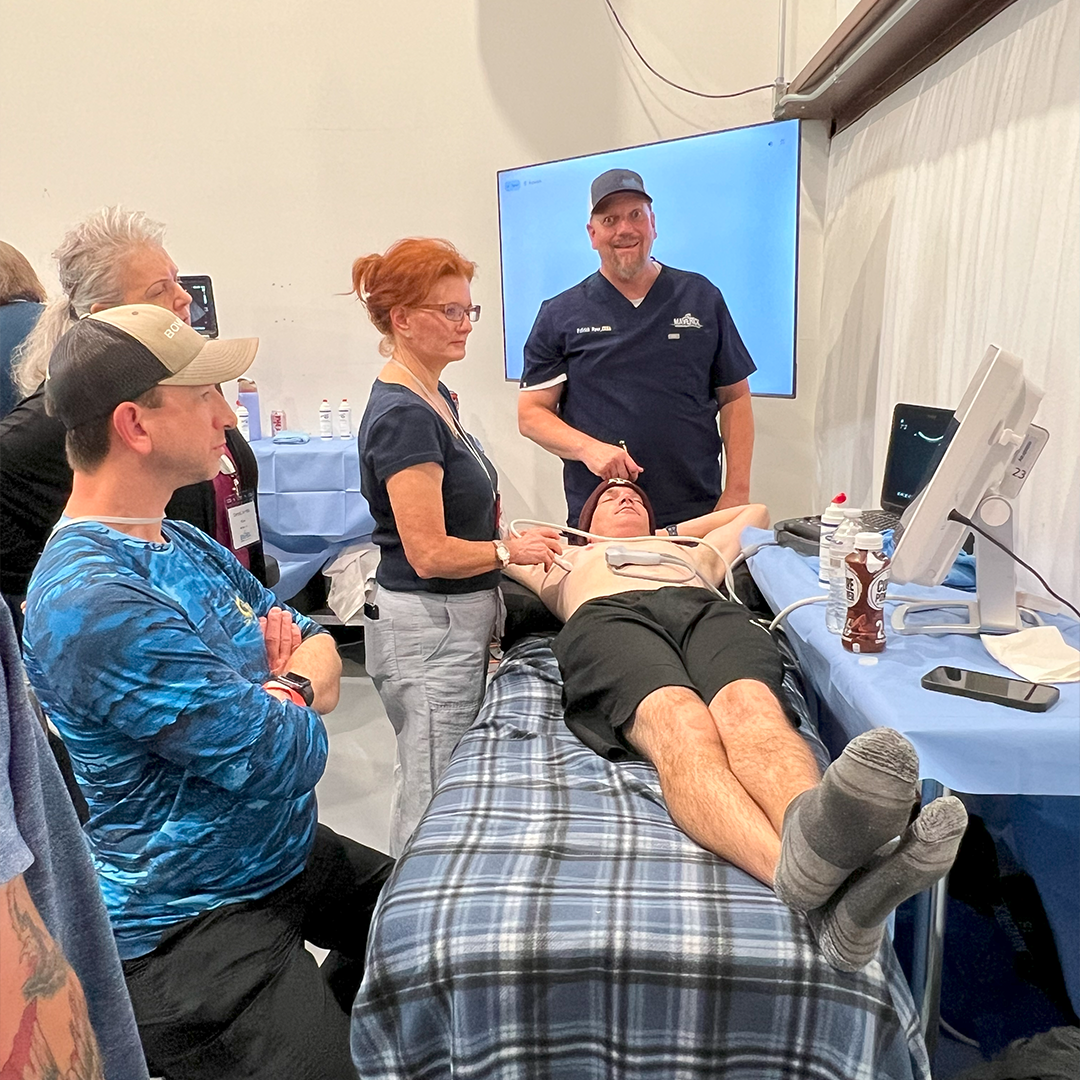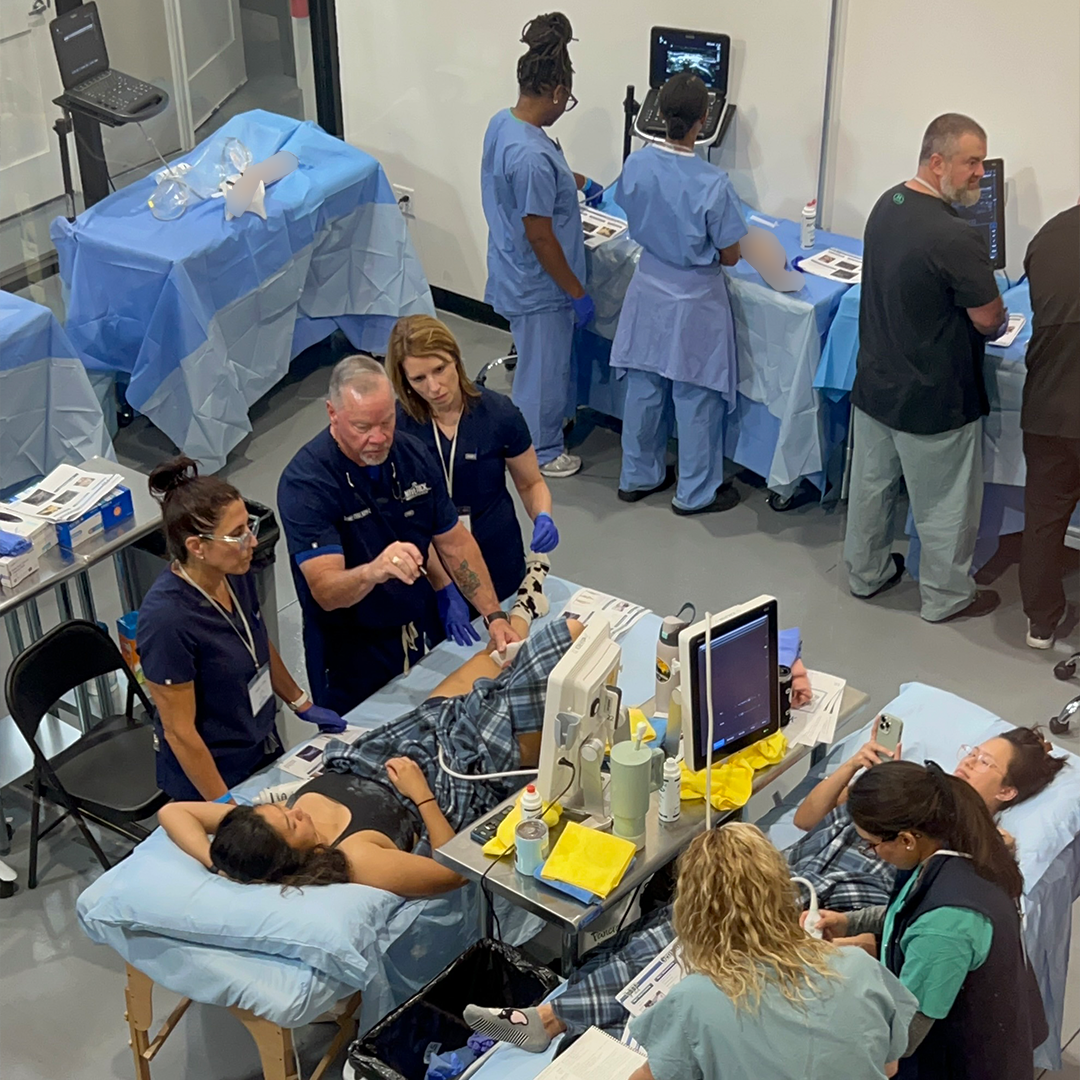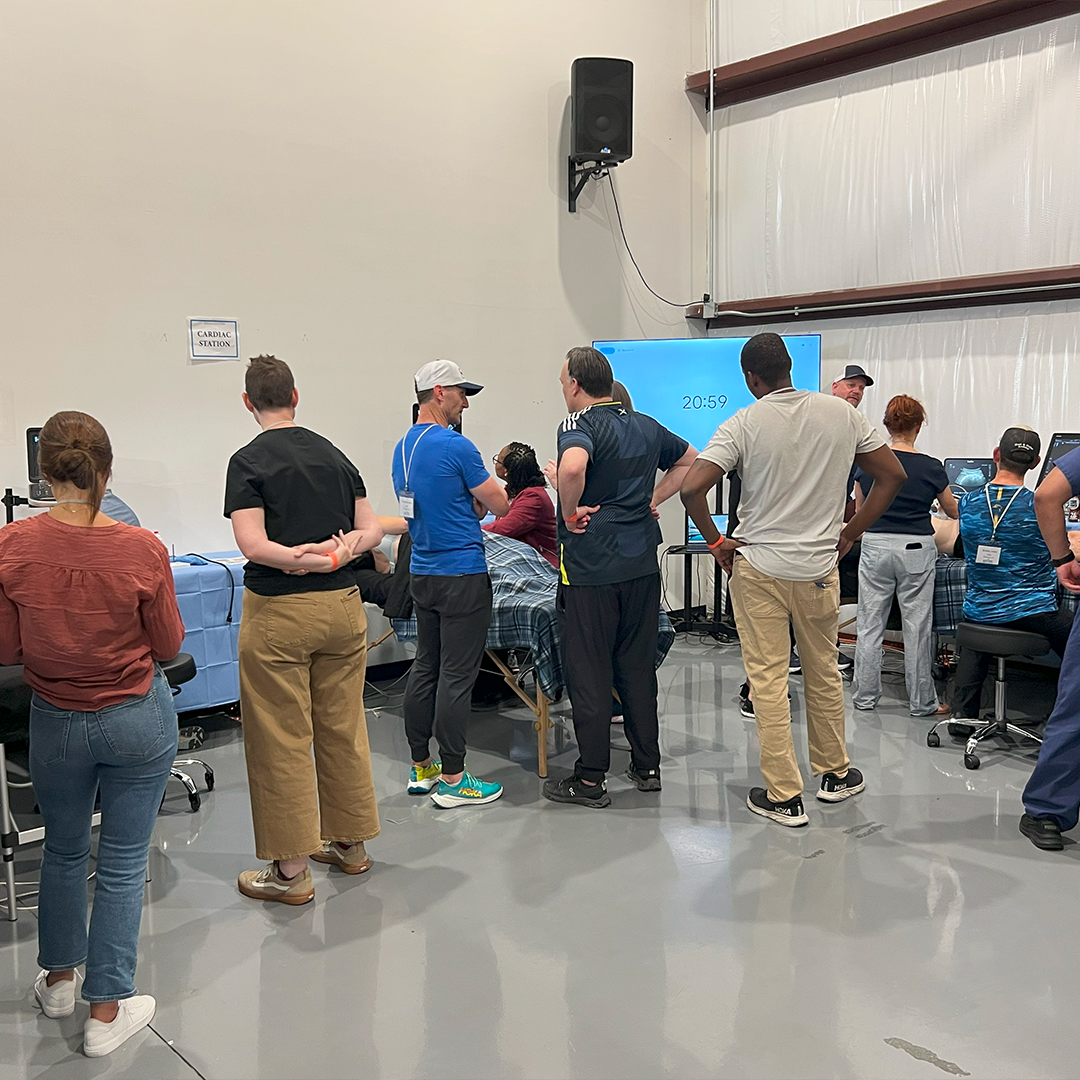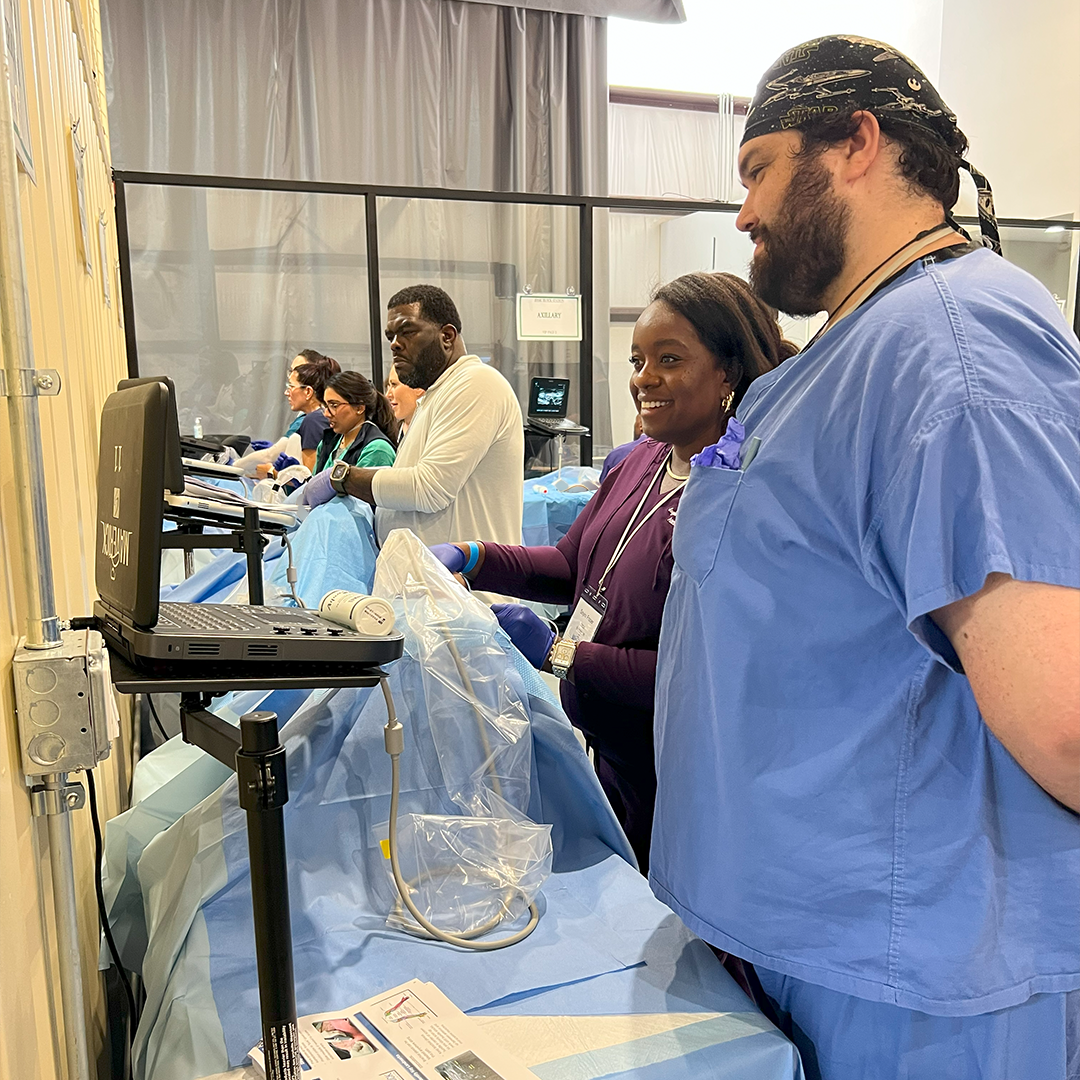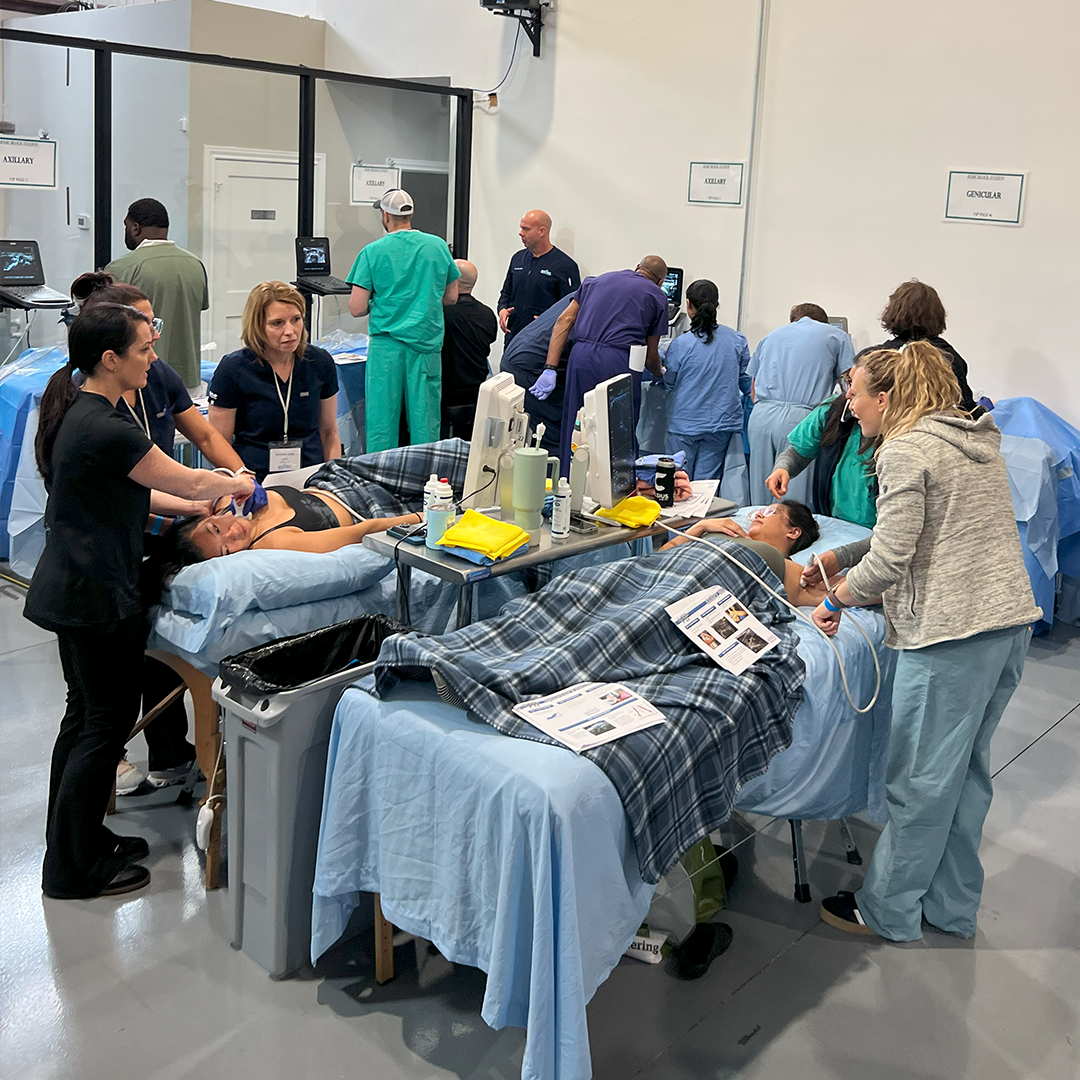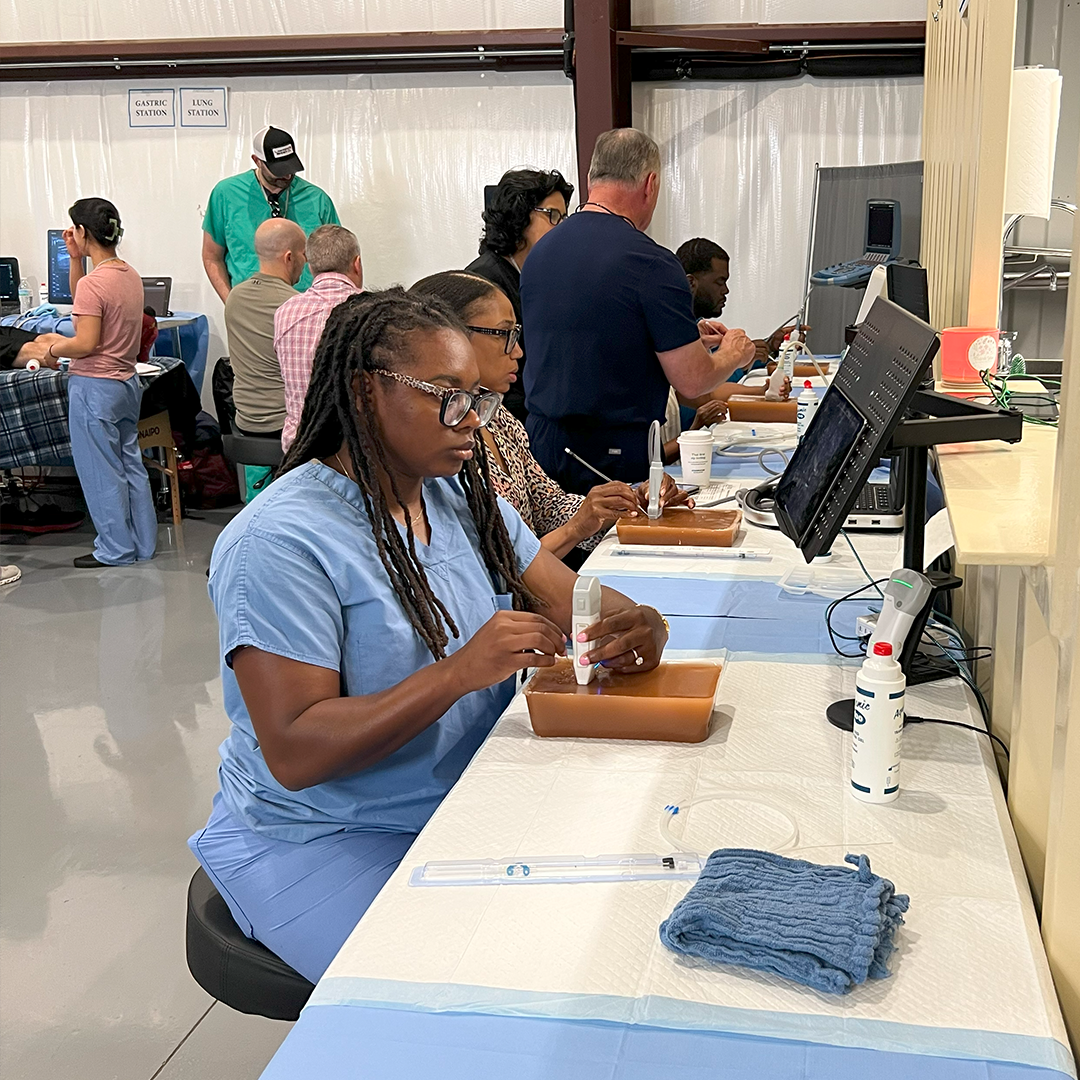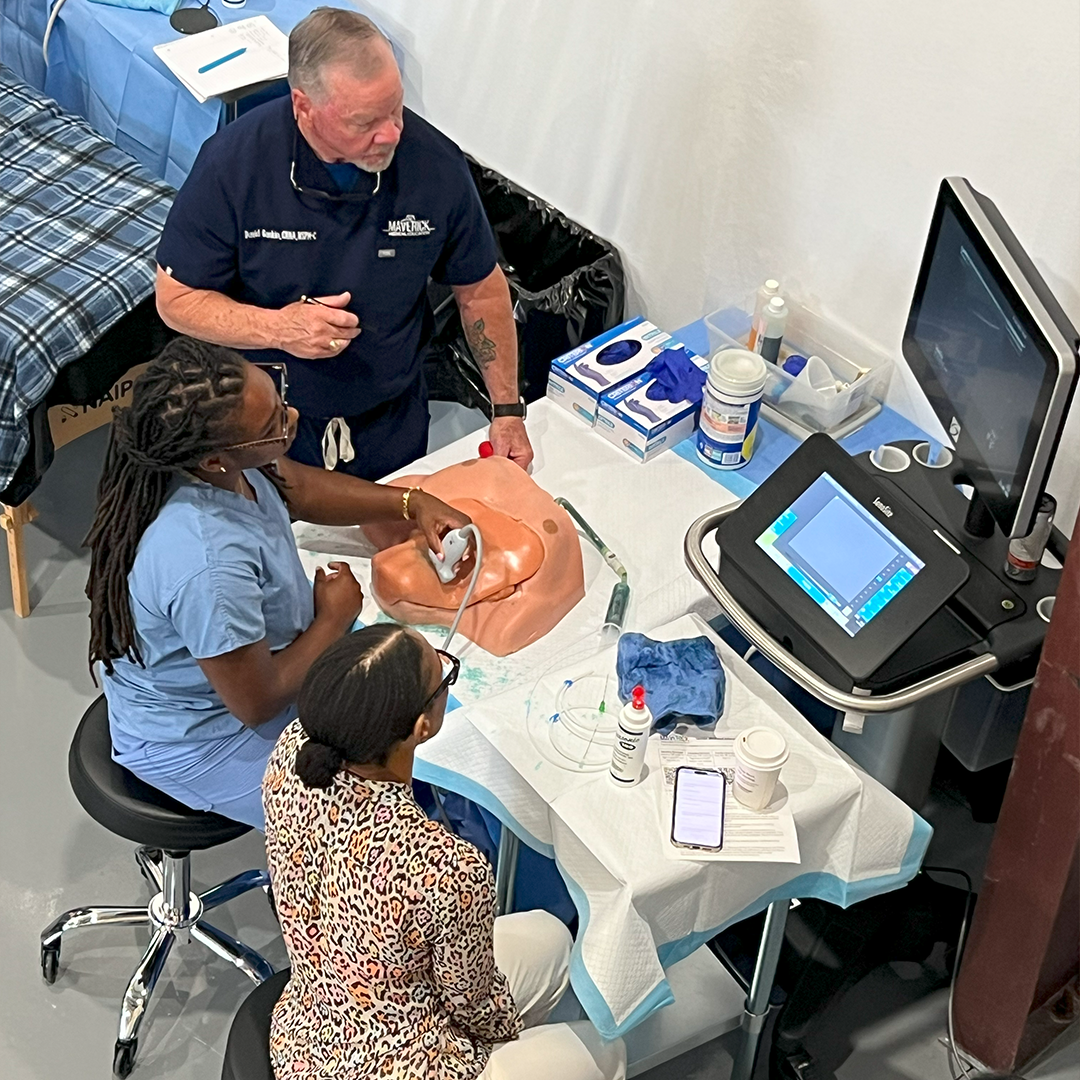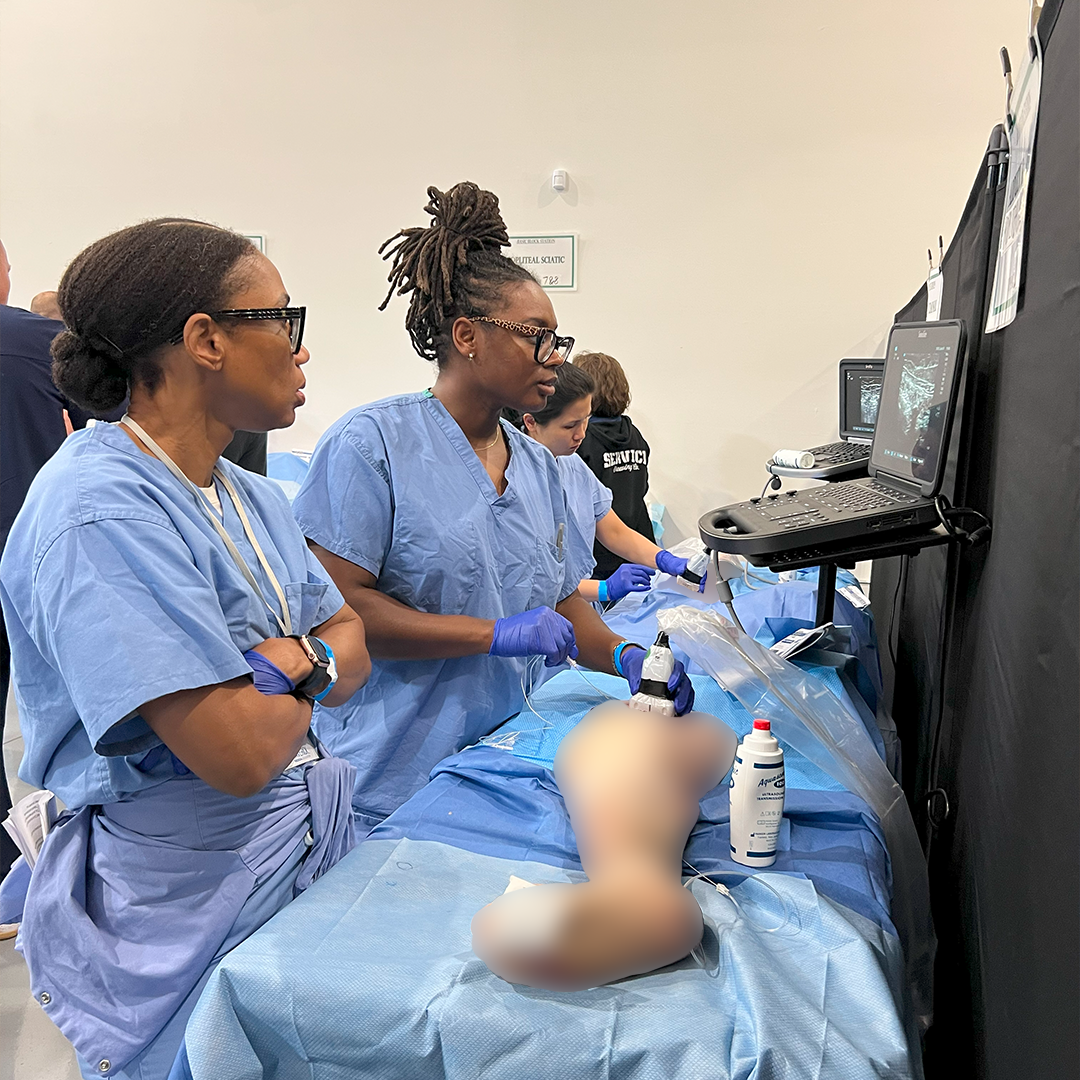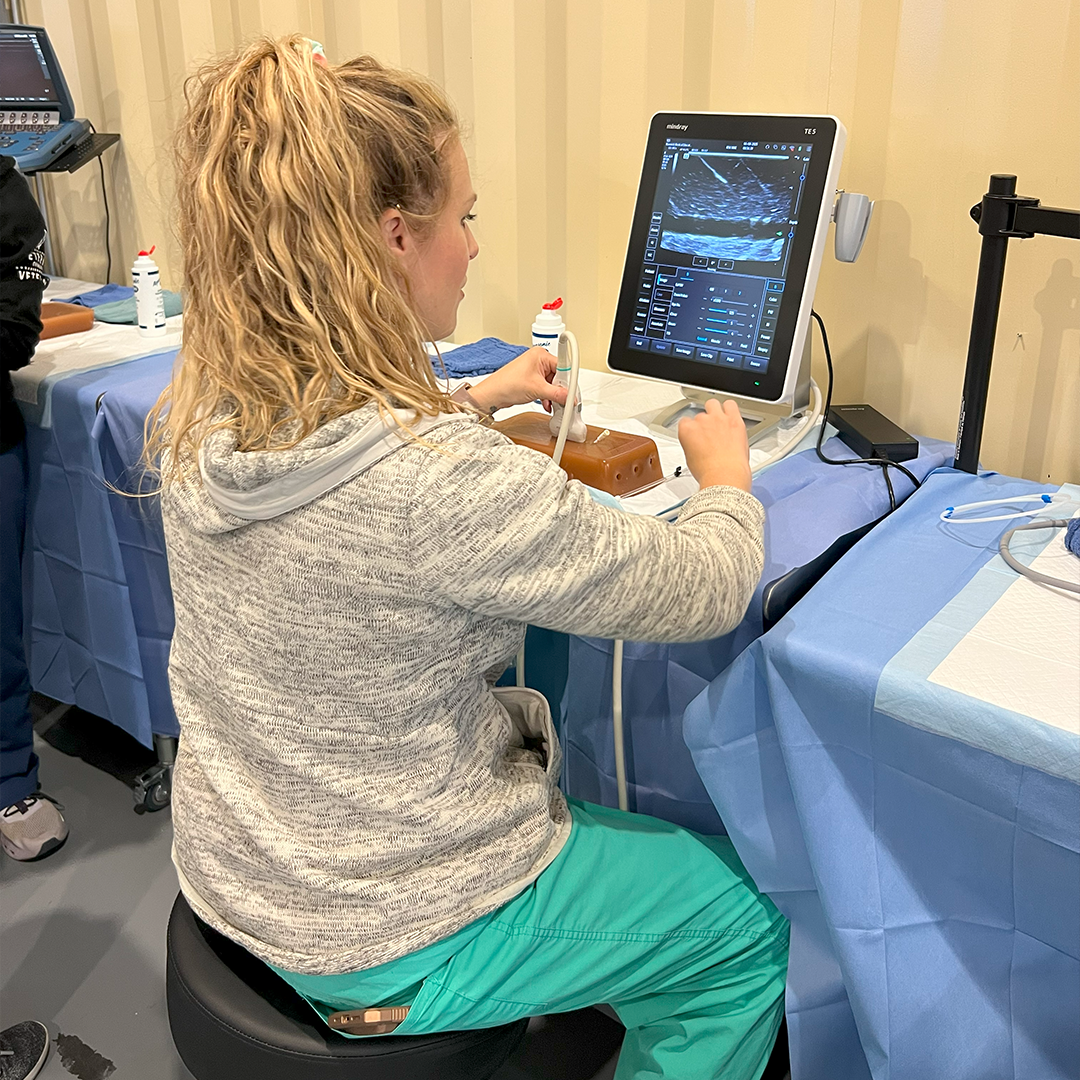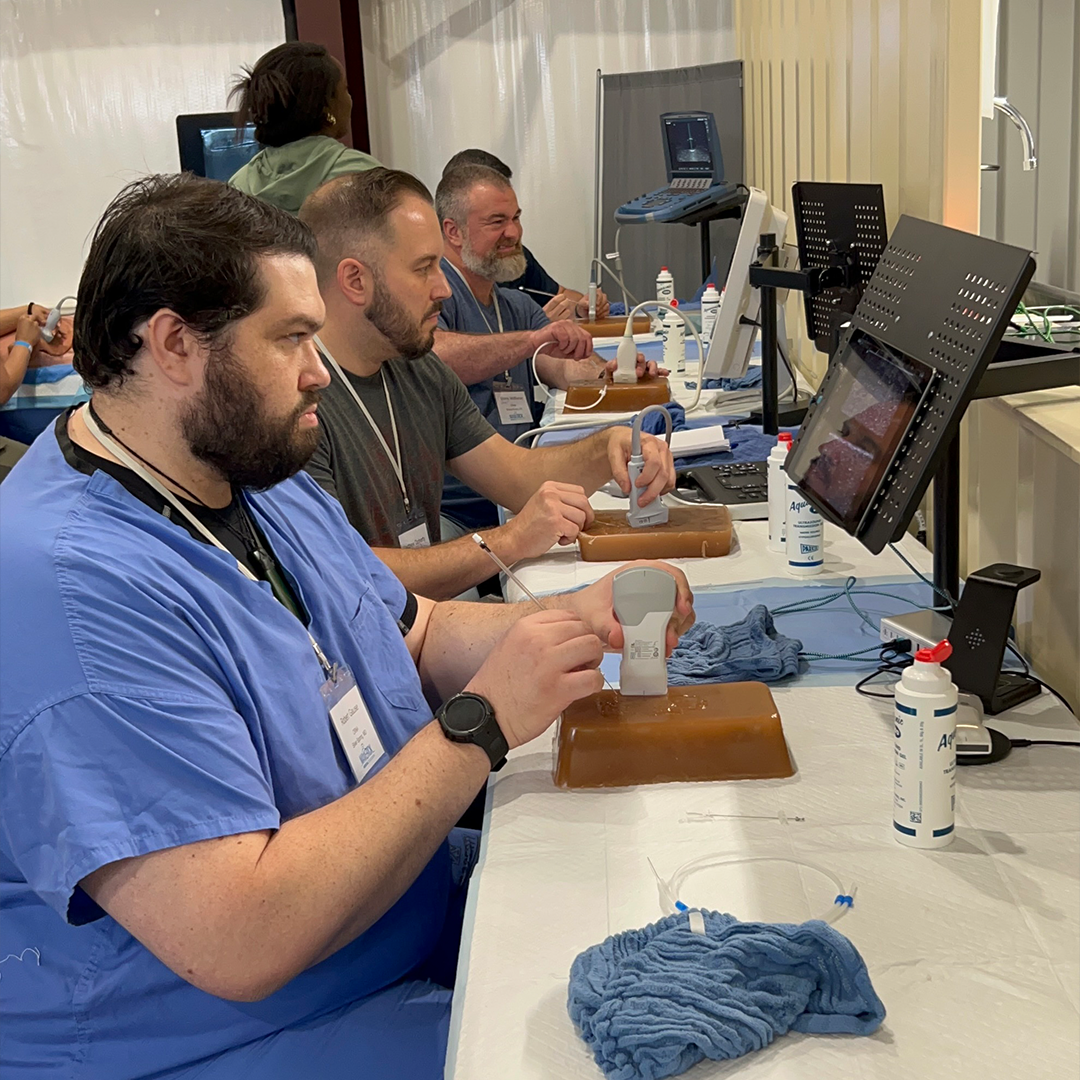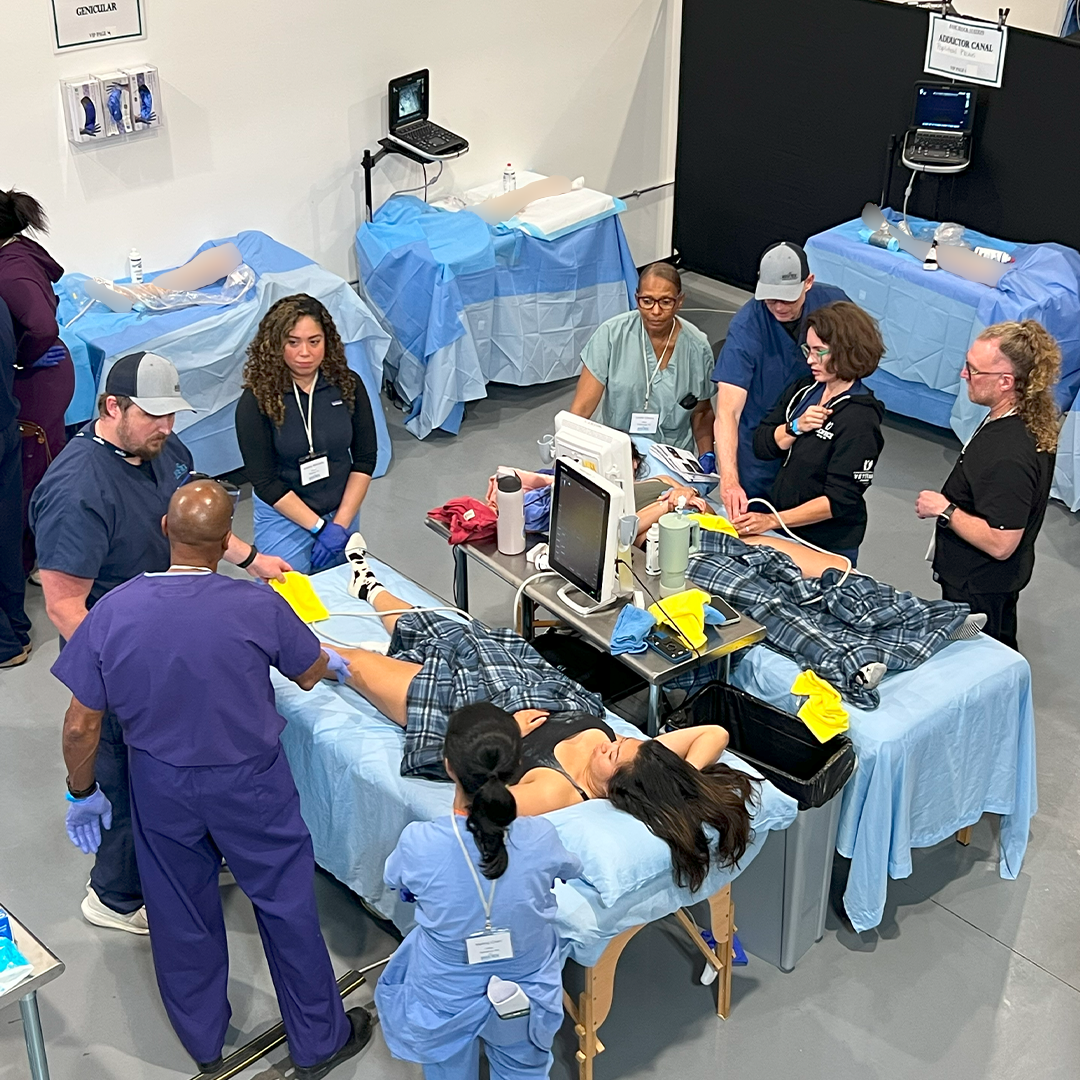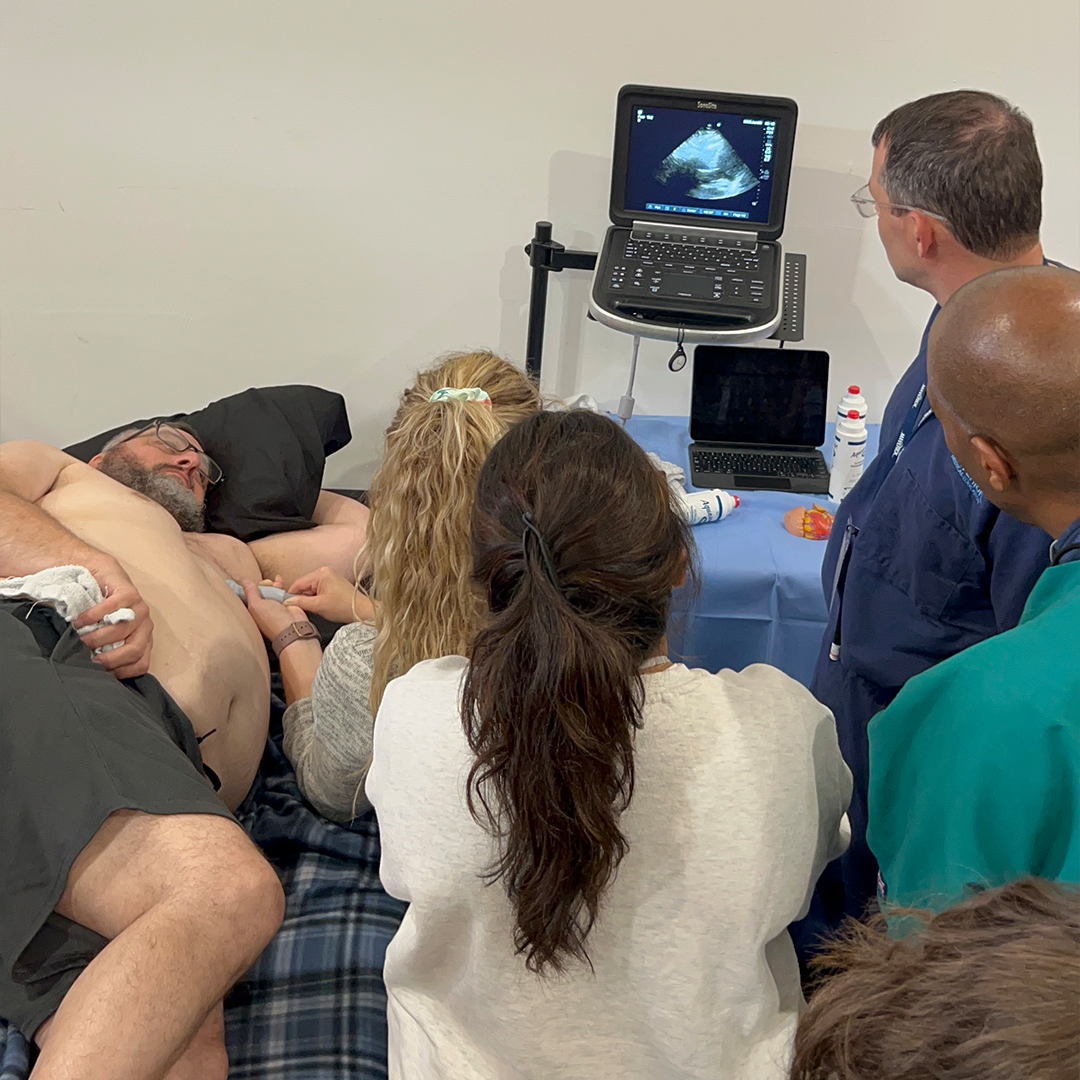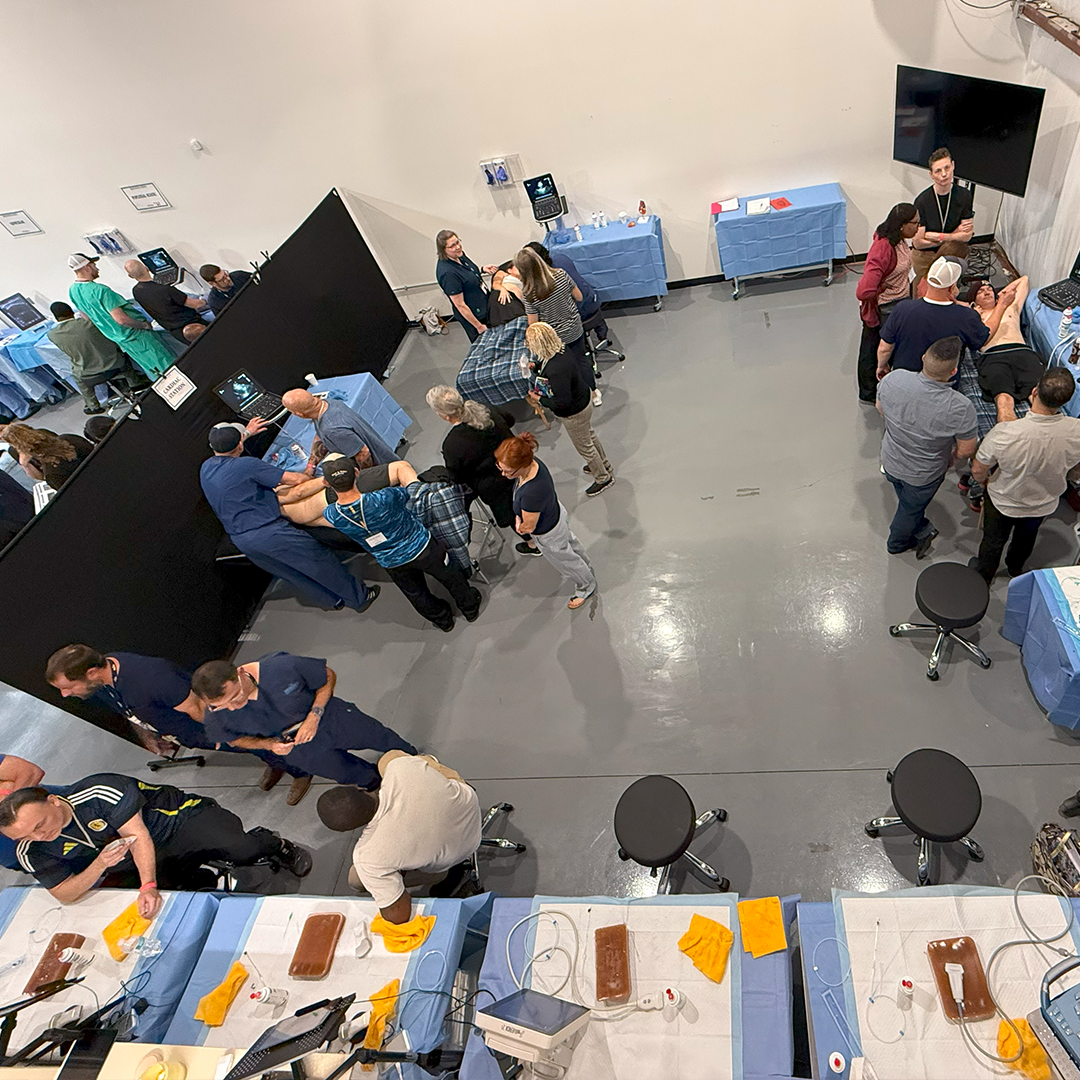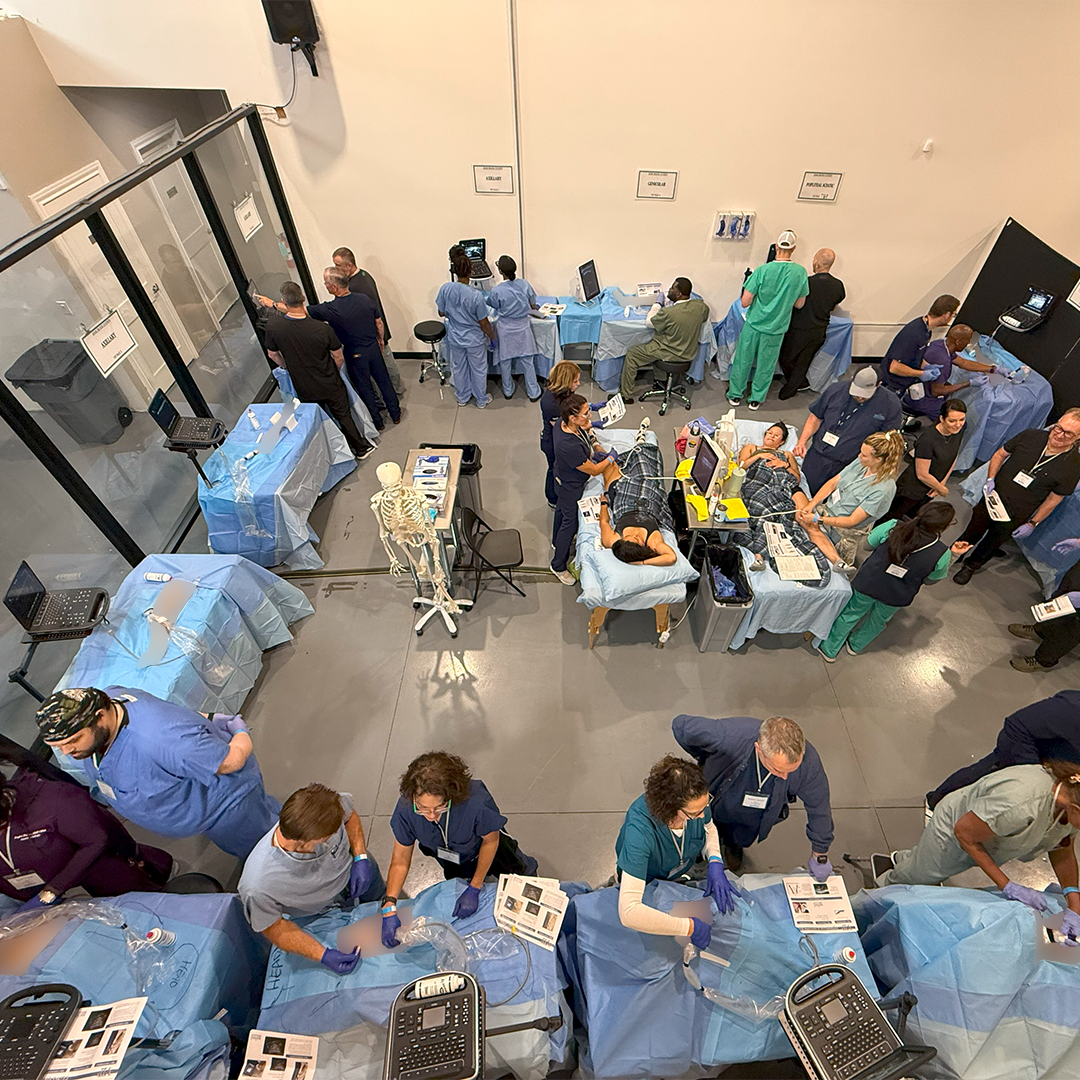Maverick Medical Education offers a course combining Regional Anesthesia Basic Techniques and Point-of-Care Ultrasound with Ultrasound Guided Vascular Access:
- Regional Anesthesia Basic Techniques teaches the basics of regional anesthesia, including ultrasound-guided nerve blocks. The course covers a wide range of topics, including ultrasound physics, anatomy, image interpretation, and needle guidance techniques to perform 8 basic regional nerve blocks.
- POCUS with Vascular Access teaches the crucial skill of point-of-care ultrasound as an assessment tool, and how to utilize Ultrasound Guided Vascular Access. The course covers the basics of ultrasound physics and anatomy, as well as the specific applications of POCUS in these areas.
This course is ideal for CRNAs, nurse practitioners, physician assistants, and other allied health professionals who want to learn the skills necessary to perform ultrasound-guided regional anesthesia and POCUS. The course is also a great way to stay up to date on the latest advances in these areas.
Click the drop downs below to explore the components of the course!
Key features of this Combo Course:
Regional Anesthesia Basic Techniques: Covers the basics of regional anesthesia, including the following ultrasound-guided nerve blocks:
- Adductor Canal
- Axillary
- Femoral
- Genicular
- Interscalene/Supraclavicular
- PENG/LFCN
- Popliteal Plexus
- Popliteal Sciatic
POCUS with Vascular Access: Teaches the use of POCUS to assess:
- POCUS for Gastric Assessment
- POCUS for peripheral vascular access
- POCUS for Internal Jugular access
- Cardiac assessment for normal cardiac function and commonly seen pathological conditions
- Pulmonary assessment for normal function and common problems.
- eFast assessment for trauma and hemodynamically unstable patients
- POCUS for DVT assessment
Note: The online-only course does not include a hands-on cadaver lab, which is included in our “complete course” listed above.
Regional Anesthesia Basic Techniques: Covers the basics of regional anesthesia, including the following ultrasound-guided nerve blocks:
- Adductor Canal
- Axillary
- Femoral
- Genicular
- Interscalene/Supraclavicular
- PENG/LFCN
- Popliteal Plexus
- Popliteal Sciatic
POCUS with Vascular Access: Teaches the use of POCUS to assess:
- POCUS for Gastric Assessment
- POCUS for peripheral vascular access
- POCUS for Internal Jugular access
- Cardiac assessment for normal cardiac function and commonly seen pathological conditions
- Pulmonary assessment for normal function and common problems.
- eFast assessment for trauma and hemodynamically unstable patients
- POCUS for DVT assessment
Upcoming Combo Course Dates
[tribe_events_list category=”combo” venue=”yes”]

